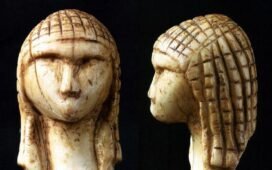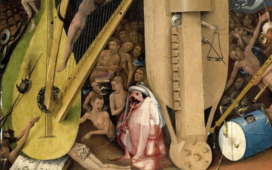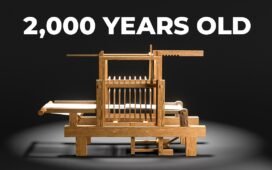Combining pop music with opera was always the height of pretension. But where would we be without the pretentious? As Brian Eno observed in his 1995 diary, “My assumptions about culture as a place where you can take psychological risks without incurring physical penalties make me think that pretending is the most important thing we do. It’s the way we make our thought experiments, find out what it would be like to be otherwise.” And with Freddie Mercury and Queen, if it wasn’t for pretense we wouldn’t have “Bohemian Rhapsody.” Hell, we wouldn’t have Queen, period.
But in 1988 the gamble didn’t exactly pay off. To the British music press, Mercury was coasting on Live Aid fumes and the shadow of his unsuccessful solo album. And then to hear that he’d teamed up with opera singer Montserrat Caballé? Despite what any hagiographic tale of Mercury might say, this passed your average rock fan by.
Outside the whims of the charts, however, Mercury’s teaming up with Caballé was the fulfillment of a goal he’d had since 1981. The singer had fallen in love with Caballé’s voice in 1981 when he’d seen her perform alongside Luciano Pavarotti.
Then began a dance between the two artists. Mercury was worried that Caballé would not take this rock star seriously. Caballé, on the other hand, was a rock music fan just like so many people. They owned each other’s albums. Finally, in early 1986, the two met: Caballé’s brother was the music director of the upcoming 1992 Barcelona Olympics and ‘Who better to do a theme song with than Freddie Mercury?’ said the singer.
According to Peter Freestone, Mercury’s personal assistant and longtime friend, meeting Caballé was the most nervous he’d ever been. Mercury was worried the opera singer would be aloof and distant. But she was as down to earth as Mercury in their offstage moments.
As Freestone recounted, “Freddie assumed they’d only make one song together. Then Montserrat said: ‘How many songs do you put on a rock album?’ When Freddie told her eight or 10, she said: ‘Fine – we will do an album.’”
Mercury had two deadlines: one based around Caballé’s schedule, and the other based around his recent AIDS virus diagnosis. Though he had composed the opening song “Barcelona” to sing alongside Caballé at the 1992 opening ceremonies, he told her that he probably wouldn’t be around for that to happen. (Caballé instead sang “Amigos para siempre (Friends forever)” with Spanish tenor José Carreras.) They did manage to perform together, singing “Barcelona” at a promotional event at Ku nightclub in Ibiza in May, 1987.
Mercury wrote the eight songs on the Barcelona album with Mike Moran, the songwriter who’d also worked with Mercury on his previous solo album and whose “Exercises in Free Love” was adapted into “Ensueño” for the album, with Caballé helping in the rewrite.
According to Freestone, watching Caballé was the most emotional he’d seen the usually reserved singer: “When Montserrat sang ‘Barcelona’, after her first take was the nearest I ever saw Freddie to tears. Freddie was emotional, but he was always in control of his emotions, because he could let them out in performing or writing songs. He grabbed my hand and said: ‘I have the greatest voice in the world, singing my music!’ He was so elated.”
In time, the album has gained in reputation, but critics point out that the label spent most of its budget on the title track—full orchestration, the works, as befits a meeting of two operatic minds—and relied on synths for the remaining songs. Fans are asking for a rerecording that brings the full orchestra to all the tracks. We’ve certainly seen odder requests granted in the last few years, like the remix of what many consider Bowie’s worst album. So who indeed can tell? Watch this space.
Note: An earlier version of this post appeared on our site in 2020.
Related Content:
Freddie Mercury & David Bowie’s Isolated Vocals for Queen’s “Under Pressure” (1981)
Hear a Previously Unheard Freddie Mercury Song, “Time Waits for No One,” Unearthed After 33 Years
Meet Freddie Mercury and His Faithful Feline Friends
Ted Mills is a freelance writer. You can also follow him on Twitter at @tedmills, and/or watch his films here.















